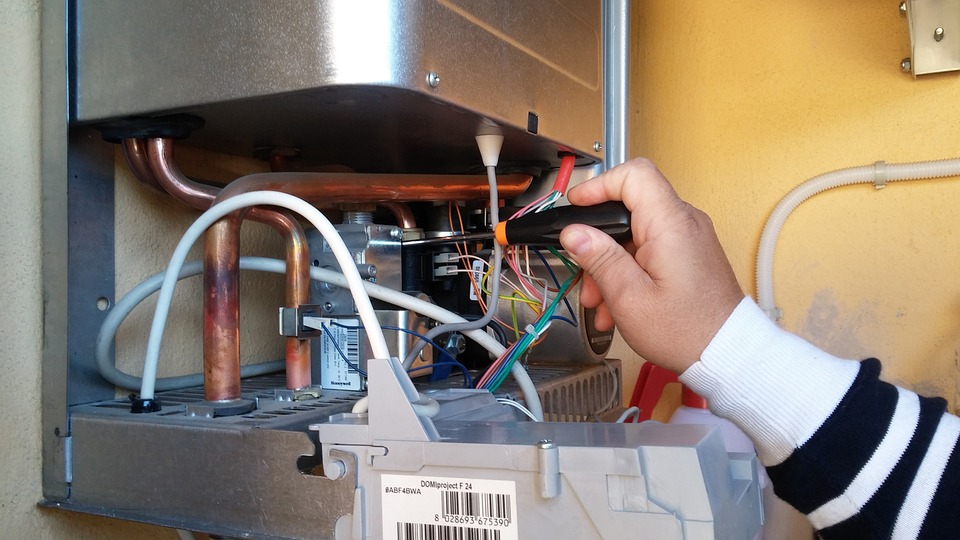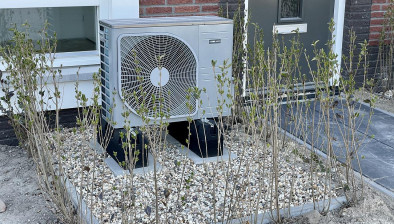Poll reveals majority of Scottish public supports action to phase out fossil fuel boilers

The majority of Scots support moves to phase out the use of fossil fuel boilers in existing homes, according to WWF Scotland.
A survey published today by the environment organisation shows more than half of those asked would support the Scottish Government introducing policies to phase out fossil fuel boilers, with 65% believing there should be new rules for better insulation in existing homes at key moments such as buying or selling a property.
Other findings include:
- 40% would consider installing a heat pump as an alternative to a fossil fuel boiler within the next five years
- 57% would be willing to purchase a heat pump with some or no Government support
- 71% are aware of the negative impact of oil and gas boilers have on climate change
- 80% believe higher oil and gas prices contribute to inflation and higher cost of living
The survey findings come as the Scottish Government prepares to launch a consultation on policies to be included in a Heat in Buildings Bill. This follows the publication in 2021 of the Heat in Buildings Strategy (HIBS) which proposed new rules to phase out the use of oil and gas boilers in houses, and to improve their energy efficiency. These would require action at key points like the replacement of a boiler or when buying and selling a house.
A related consultation, to improve the information about energy efficiency and heating systems provided by Energy Performance Certificates (EPCs), has also been launched.
The proposals are to accelerate investment in energy efficiency and the replacement of fossil fuel boilers in homes, which account for 15% of Scotland’s annual climate emissions. The clean heating industry has called for these policies to give businesses and households the certainty they need to plan and invest, and to spur market growth.
Fabrice Leveque, climate & energy policy manager at WWF Scotland, said: “These findings show there is strong public support to move away from fossil fuel heating and that people link the use of oil and gas heating to the growing climate emergency.
“Cleaner heating is vital to tackle climate change but can also make the most of Scotland’s abundant renewable energy, protect households from unstable fossil fuel prices and lower energy bills. Industry and households need clear Scottish Government policies and financial support to make the switch and we must see the detail of these proposals without further delay.
“It’s been five years since the Scottish Government first consulted on these proposals and the next steps are overdue.”
Russell Dean, residential product group director at Mitsubishi Electric, which manufactures heat pumps at its factory in Livingston, said: “Heat pumps are overwhelmingly the favoured source of renewable home heating. By taking positive action and by providing clear guidance for business to support renewable home heating, the government will remove risk and show that it is leading the way to decarbonise homes. This will encourage businesses to invest and innovate at a more rapid rate and show the dynamism that exists in the industry.”
Andrew Lamond, director of the Energy Training Academy in Dalkeith, which provides training for new and existing heating engineers, added: “Standards requiring cleaner heating will play an important part in giving industry the confidence to invest in new staff, skills and training that will grow and develop the industry. Today, many heating engineers are still unsure as to what technologies they’ll be installing in the future, and the quicker that uncertainty is lifted the better.
“New standards should be phased in over time, with homeowners and tenants given advice and support to operate new heating systems correctly.”
Earlier this year, WWF Scotland published a report which showed heat pumps are the best solution to decarbonise houses, with increasing numbers likely to see lower energy bills as a result. Around half of homes will require moderate cost insulation improvements to enjoy cheaper bills with heat pumps. With renewables providing the vast majority of Scotland’s electricity, they can also cut a typical Scottish home’s annual carbon emissions by up to 90%.









